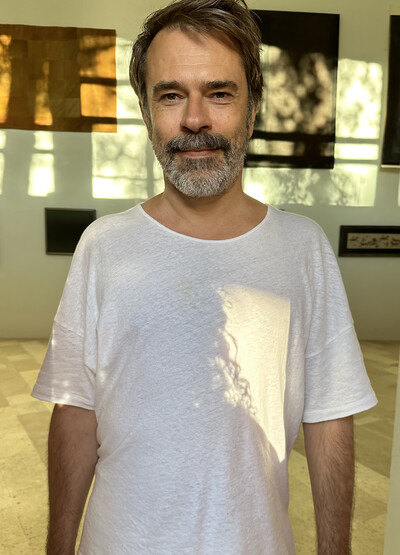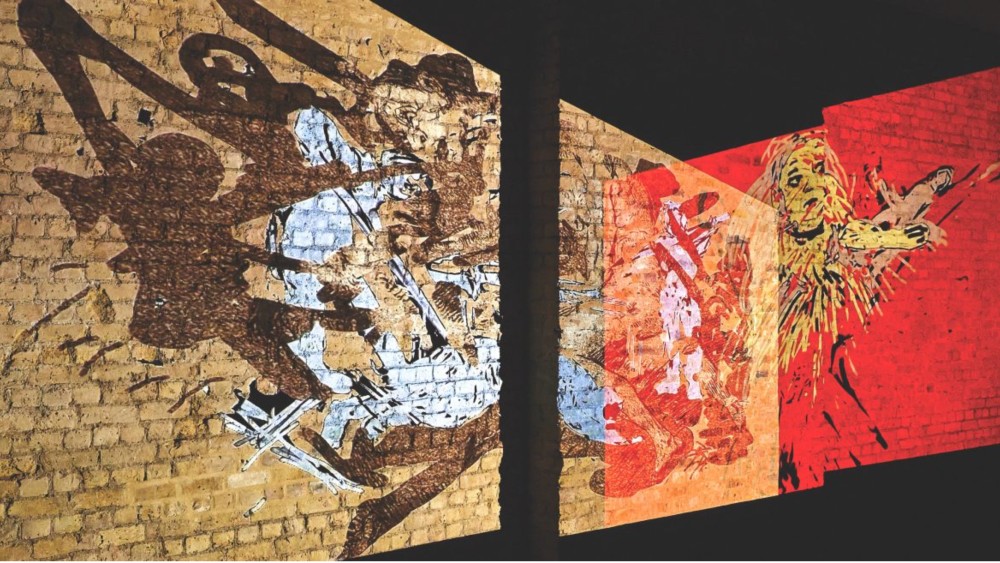Duration: Apr 13 – May 11, 2021
Fee: 172€
Max seats: 32
Enroll before: Apr 8, 2021
Dedication: 3 hrs/week
The term “Art-Science” is currently a hyping topic in contemporary art, and is capturing the attention of a growing number of curators and artists. This course delves into the broader history of artistic practice at the intersection of art, science and technology to chart some of the key debates defining the field today. Through its focus on specific case-studies, while spanning a wide array of scientific disciplines (ranging from biotechnology and human enhancement to quantum- and astrophysics, and environmental engineering), it addresses the potentials and challenges of curating exhibitions within this field through a series of four discussion-rich sessions.
The introductory class delves into the ongoing debate around C.P. Snow’s seminal lecture, “The Two Cultures”, in order to discuss the urgency and particular demands of working at the intersection of art and science today. The second explores previous waves of engagement within the field and relates them to the current upsurge of interest, while the third addresses curatorial positions to complex issues around ethics and autonomy, as well as common pitfalls in actual practice. The last session takes a more pragmatic approach in discussing what curators can do to safeguard the quality, value and integrity of art-science projects, and thereby cultivate an environment in which interdisciplinary collaborations can become meaningful.
Week 1. Introduction
- Introduction to the program and course overview.
- This is a one-hour-only welcome session. The lecturer will introduce the program and participants will introduce themselves. No prior preparation is necessary.
Week 2. The Third Culture: An Ongoing Debate
- Introduction to interdisciplinary curatorial approaches: motivations and potentials
- The conflict of methods (a myth?): positivism versus interpretivism
- Tracing the debate through C.P. Snow’s “The Two Cultures” (1959)
- Beyond generalization: The particularities of different fields of science (biotechnology, human enhancement, neuroscience, quantum- & astrophysics, environmental engineering, etc.)
Week 3. Historical & Contemporary Perspectives
- Waves of engagement: interdisciplinary artistic approaches in the 20th & 21st centuries
- State of the art: curatorial tendencies, thematic focal points and potentials characterizing the field today.
- Dissolving niche culture: curatorial approaches that can counter the increasing specialization of ‘Art-Science’ as a discrete category
Week 4. Positions: From Spectacle to Meaningful Engagement
- Responsibility, integrity and ethics
- Curating as knowledge-making, not “Public Outreach”: potentials and traps
- Removing the smoke screen: decoding and translating specialist language and imagery
Week 5. Setting the Frame: Practical Guidelines
- Initiating collaborations: marking boundaries while cultivating the unexpected
- Disciplinary politics and regulations, obtaining licenses and navigating geo-specific policies
- Curating the unknown: residencies and new commissions
- Keeping a finger on the pulse: websites, journals, magazines and social-media platforms
- Sites and audiences: awareness and adaptation
- Concluding discussion: shifting perspectives and outstanding questions
Isabel de Sena is a Berlin-based independent curator and currently a PhD candidate in practice-based research at the University of Reading School of Art. Her recent work includes projects at FACT Liverpool, Art Laboratory Berlin, European Media Arts Festival (EMAF), Martin-Gropius-Bau Berlin, Barbican Centre London, transmediale Berlin, Migros Museum Zurich, Pasadena Arts Council L.A., and Tokyo Wondersite. Isabel’s texts have been published among others in Paradoxa (Climate Fictions), ‘The Beautiful Warriors: Technofeminist Practices in the 21st Century’ and ‘Intersubjectivity III: Identity and Intimacy’, and she has lectured internationally at art academies such as California Institute of the Arts, School of Art Kassel, and Zurich University of the Arts. Isabel is currently Curatorial Advisor at the Museum of the Science History Institute, Philadelphia.











